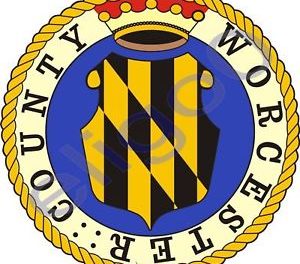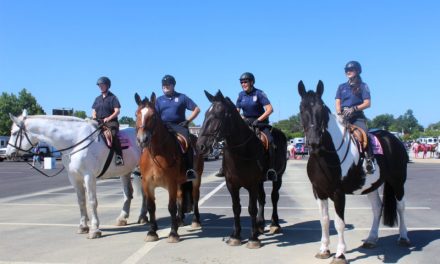2020: The Pandemic Sine Die By Crystal Brumme Pickett and Jane Seigler
first published in the May 2020 Equiery
What a strange year.
Even before the world was consumed by the pandemic now known as COVID-19, it was a strange year for the Maryland General Assembly. It was the first year Mike Miller was not President of the Senate; for 32 years, the Maryland Senate had been run under his steady and predictable hand. Across the aisle, since 2003, the House had been under the steady and predictable hand of Speaker Mike Busch, who passed away in 2019, and it was shortly after that when Miller retired as Senate president. For the 2020 legislative session, not only were both gavels in new hands, but both chess-boards had been completely rearranged, with new committee members and chairs, and a cadre of 2018 elected legislators entering their sophomore year now having gotten their feet wet but with their same freshman determination to shake things up, get stuff done!
In Maryland, in a normal year, we begin with a hard start and a hard close after precisely 90 days. Bills that don’t turn into laws by the end of session are dead. Done. Game over. If the proponents of a bill want to keep going, then they have to start all over in the next regular session (or in some cases a special session) – usually a bit wiser to the process, usually with a better written bill.
But this was not a normal year. We began with the usual shotgun start, but we came to a screeching crash of a close after only 71 days due to the COVID-19 crisis, cutting short the deliberative process by almost a third.
Like most years, over 3,000 pieces of legislation were introduced, including some bills brought forward by the Maryland Horse Council. About 660 bills were passed, but as of this writing the only bills which have been signed into law by the Governor are those related to the COVID-19 crisis, and the Governor has stated that he may not sign any bills that require spending State money.
MHC submitted two bills this session. We knew not to expect either of them to pass the first year, so we were delighted when one did! That rarely happens. Usually it takes several years, at least, for a bill to pass – but each time the legislation is presented, it is a little bit tighter, a little bit more well written – just a better bill than in prior years.
The Victory: Expanding Criminal Harassment Law to Include All Legal Equine Activities
With all the young new legislators, our “Carriage Horse” bill was eagerly embraced by several different sponsors, who each then presented different versions of our concept. A unique challenge!
What was the Horse Council’s objective with “The Carriage Horse Bill?” Established law made it illegal to interfere with certain classes of horses engaged in certain activities, limited in the existing law to horses involved in racing, breeding, and showing/competition. MHC wanted the law to include all manner of equines (donkeys, mules, ponies, as well as horses) engaged in any legal activity, which would then include carriage and wagon rides. MHC was inspired to broaden the existing law after a legally operating holiday wagon/carriage ride business endured potentially dangerous harassment from activists in 2018.
We had three versions of our proposed legislation entered. In the end, all the sponsors came together to pass the final version, which ended up attracting even more legislators who wanted to have their name on the final version as a bill sponsor. MANY thanks to Senators Hough and Hester and Delegates Guyton, Bagnall, Boyce, Buckel, Hornberger, Lehman, R.Lewis, Metzgar, Morgan, Young, Cardin, Cox, McComas, and Pippy.
The bill is waiting to be signed into law by the Governor.
Back In The Hopper: Licensing of Breeding Stables
Over the last decade, there have been a number of high profile equine neglect and seizure cases (involving in some cases over 100 horses), owned by self-identified breeders, ostensibly breeding for the purpose of selling the horses. Unlike other stables offering services to the general public (such as boarding, lessons, training, and trail rides), breeding stables are not required to be licensed. Because neglect cases are complaint driven, by the time there is any “official” involvement, it is often too late for some of the animals. Adding breeding stables to those establishments that require licensure by the MHIB provides an opportunity for pro-active oversight, before the situation develops into criminal neglect.
Thoroughbred and Standardbred breeding stables would continue to be exempt, as they are already included under racing-related regulations. The MHIB had concerns about the implementation, and there were some problems with the language that emerged from the Legislature’s bill drafting service. The Maryland Horse Council recommended that the bill be withdrawn, and it was. MHC will be leading a task force of stakeholders to craft a new bill to submit in the 2021 legislative session.
Other Legislation Directly Affecting the Equestrian Community
Defining “Therapy Horse” in the Maryland Veterans Service Animal Program
A Senate Bill that crossed over but died in the House, the intent of the bill was to define the terms “service dog”, “support dog”, and “therapy horse” for the purposes of evaluating eligibility for participation in, and receipt of grant funds under, the Maryland Veterans Service Animal Program in the Department of Veterans Affairs.
In the 2019 legislative session, horses were grafted onto the program, which previously had only included dogs, and this bill was an attempt to flesh out the “rules” for that inclusion. The head scratcher for the MHC Legislative Committee was that the bill defined “therapy horse” as “a horse trained for interactions with veterans by a professionally accredited equine therapy program.” However, to the best of our knowledge, no such organization exists. What was also a head scratcher is that there was no similar requirement in the bill that dogs be trained by a “professionally accredited canine therapy program.”
Unless amended, MHC opposed the bill as it was written. The bill was amended, but the language was still problematic for many in our community. The legislative session ended before the bill proceeded further. We expect the bill to return, but we are hoping to be able to work with the sponsor and with members within our community to make it more realistically functional.
Vet Board & Unauthorized Practice of Veterinary Medicine
The bill that was originally entered looked nothing like the heavily amended version of the bill that passed. The original bill gave very broad powers to the State Board of Veterinary Medical Examiners to issue cease and desist letters with penalties up to $5,000 for the unauthorized practice of veterinary medicine.
Although the bill addressed only enforcement and penalties, it was of particular concern to some because of how current Maryland law defines the “practice of veterinary medicine.” In MD Code, Agriculture, § 2-301; the practice of veterinary medicine has a very broad definition that often catches animal health practitioners of alternative therapies by surprise. There is a lengthy list of exceptions to those activities considered to be the practice of veterinary medicine (for instance, farrier is specifically exempted, as is a person who floats or cleans teeth – although all other dentistry is considered veterinary practice).
The final version of the bill, which has passed and is now awaiting the Governor’s signature, significantly increased the penalties (from a maximum of $5,000, to up to $10,000 for repeat offenses), but added some procedural protections such as requirements for notice and a hearing, and a right of review.
Pimlico, Laurel & Bowie
This sweeping bill, “The Racing & Community Redevelopment Act of 2020,” authorizes the Maryland Stadium Authority to float $375 million in bonds to overhaul the two Thoroughbred race courses owned by the Maryland Jockey Club. The legislation specifies $180 million for Pimlico, home of the Preakness, with tremendous sentimental and symbolic meaning for many in the community regardless of whether or not they are directly connected to horses, but a fiscal challenge for MJC. $155 million will be allocated to Laurel Park, MJC’s more fiscally sound track located in central Maryland. Original law granted 40 live racing days to Pimlico; the new act would grant 180 live racing days to both Pimlico and Laurel combined.
Among a whole smorgasbord of requirements are mandates that MJC convey Bowie Training Center to the city of Bowie, and that an Equine Health, Safety & Welfare Advisory Committee be established for race horses.
The funding will enable MJC to demolish Laurel as it currently is, grandstands, clubhouse and current tracks, and rebuild it into a state-of-the-art facility and training center, and installing 3 new surface tracks: dirt, turf and synthetic. Pimlico will be redeveloped and renovated as both a racing and community-purpose venue. When not conducting the Preakness Stakes, the clubhouse and facilities will be used for community activities, recreational purposes, civic events, and other public purposes. For more detailed information about this Act, visit the websites for MHC’s thoroughbred members: The Maryland Horse Breeders (Mid-Atlantic Thoroughbred) and Maryland Thoroughbred Horsemen’s Association.
General Ag-Related Legislation
Valuation of Easements in MALPF Offers
Existing law authorized MALPF (which purchases easements on farms to ensure the land stays in ag use for perpetuity) to use the fair market value of the property at the time the written request was received to consider the property for the program, but the law was silent on the length of time for which that fair market valuation would be considered valid. This approved bill, now awaiting the Governor’s signature, caps that validity period at a maximum of two years.
Repeal of St. Mary’s County Power to Do Installment Agreements
Also awaiting the Governor’s signature is the approved bill that will repeal the ability of St. Mary’s County to enter into installment purchase agreements for ag land preservation.
More Money for Cost Share Practices on Horse Farms
This bill, which awaits the Governor’s signature, specifically recognizes certain “fixed natural filter practices” that will be eligible for cost share funds. Included are options particularly useful to horse farms, such as “pasture management, including rotational grazing, livestock fencing and watering systems implemented as part of the conversion of cropland to pasture.”
Other Legislation
Heads Up! On-Coming Traffic!
MHC opposed a bill that would allow, under certain circumstances, drivers on two-lane roads to drive on the opposite side of the road in a no-passing zone in order to overtake and pass a bicycle, as this presents a serious danger for those hauling horse trailers who do not have the ability to easily avoid a head-on collision with oncoming traffic. The bill passed, so heads up everyone.
DNR Attempts To Tidy Up the Laws Governing Sunday Hunting
Over the past couple of decades, the law that initially banned any Sunday hunting anywhere in the state has been chipped away at, amended, and added to in a piecemeal and patchwork fashion, so that the law had become incredibly complex and difficult to read and comprehend. At the request of some members of the Legislature, DNR completely redrafted the section of MD law that governs where and when hunting on Sundays is allowed. Ostensibly, the bill was just a “clean up,” with no changes to existing law. Careful review by MHC, however, revealed that the bill as proposed by DNR did, in fact, make a major change in existing law. In existing law, Sunday hunting is only allowed on public land in six counties: Allegany, Cecil, Frederick, Garrett, St. Mary’s (except State Parks) and Washington. The new bill would have opened public lands to Sunday hunting everywhere in the state, except for lands in the State Park System. The Horse Council opposed the bill for this reason; DNR agreed to amend the bill to meet our concerns, and the bill passed.
What does our COVID-19 experience teach us about the Deliberative Process?
For those of us who have been working on legislative issues and regulatory affairs for the Maryland Horse Council for decades or more, we are accustomed to the frustration of those new to the process of grassroots lobbying. It is not uncommon for newcomers to be frustrated after their first legislative session – dismayed at the cumbersomeness of the process, at the hours and hours of hearings; upset that their bill didn’t pass; angry that the process has to start all over the next session. “It shouldn’t be this difficult,” is the common complaint. To which we respond, “yes, sometimes it should.” Although governments and legislatures should not drag their feet when necessary to right wrongs and correct injustices, in most cases lawmaking should be a slow and deliberative process. One merely has to look at the controversies spawned by the COVID-19 State of Emergency Executive Orders to under-stand why.
The State of Maryland and the Secretaries of the various Departments (of Agriculture, of Natural Resources, of Labor, Health, etc.) have had to quickly interpret and apply (albeit short term) the Governor’s Executive Orders so quickly that the “law of unintended consequences” came into play. If the “stay at home” order means THIS, with the exception of THAT, well then, shouldn’t this be that? “But that’s not fair!” “That’s not right!” “That’s a violation of my constitutional rights!”
The guidelines for the public, necessarily issued in haste, are a sterling example of why the process of making new laws or amending existing laws SHOULD be slow and deliberative. The guidelines, in practice, have sometimes been vague or left questions unanswered, and have even, at times, ranged from confounding and contradictory, to unrealistic, impracticable and unenforceable, causing the anxiety level in our communities to increase, turning neighbor against neighbor, friend against friend.
During this COVID-19 crisis, the Maryland Horse Council’s Executive Committee, which has several MHC Legislative Committee members serving on it, has worked hard to address these implementation issues. It has met weekly to review the latest directives related to the State of Emergency and the policies being issued by those agencies most relevant to our community (primarily the Depart-ments of Agriculture and Natural Resources). We have discussed and sought answers to the questions put to us by our communities about the intent and effect of the agency directives. We have tried to present the concerns of the communities to the regulatory bodies; we have attempted to influence the interpretation of guidelines often to no avail, as the agencies are overwhelmed and reeling in their attempts to figure out how to apply the Governor’s orders to various segments of the ag industries, various user groups of public lands, etc.
Let us remember that, as we go to press with the May issue, we remain in a State of Emergency. This is not a permanent state-of-being. This will end. And when it does, we will return to the slow, methodical, process of creating and amending laws, the “deliberative process” and we will embrace this deliberative process which is the hallmark of our government with relief, with a new found respect, and possibly with pleasure.
The MHC Legislative Committee meets via conference call weekly during the legislative session. Many thanks to those who served on the 2020 committee: Jane Seigler, Crystal Brumme Pickett, Christy Clagett, Corinne Pouliquen, Joanne Stone, Jennifer Sponseller-Webster, Joe Michael, Jacquie Cowan, and particularly to Kim Egan who reviewed and prepared, each week, an updated spreadsheet of relevant bills with pertinent data.












